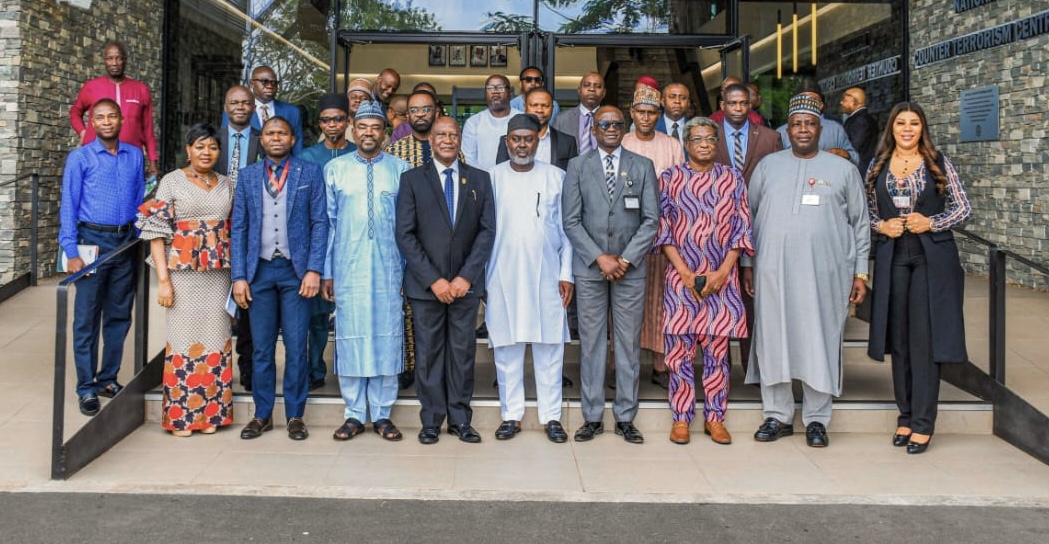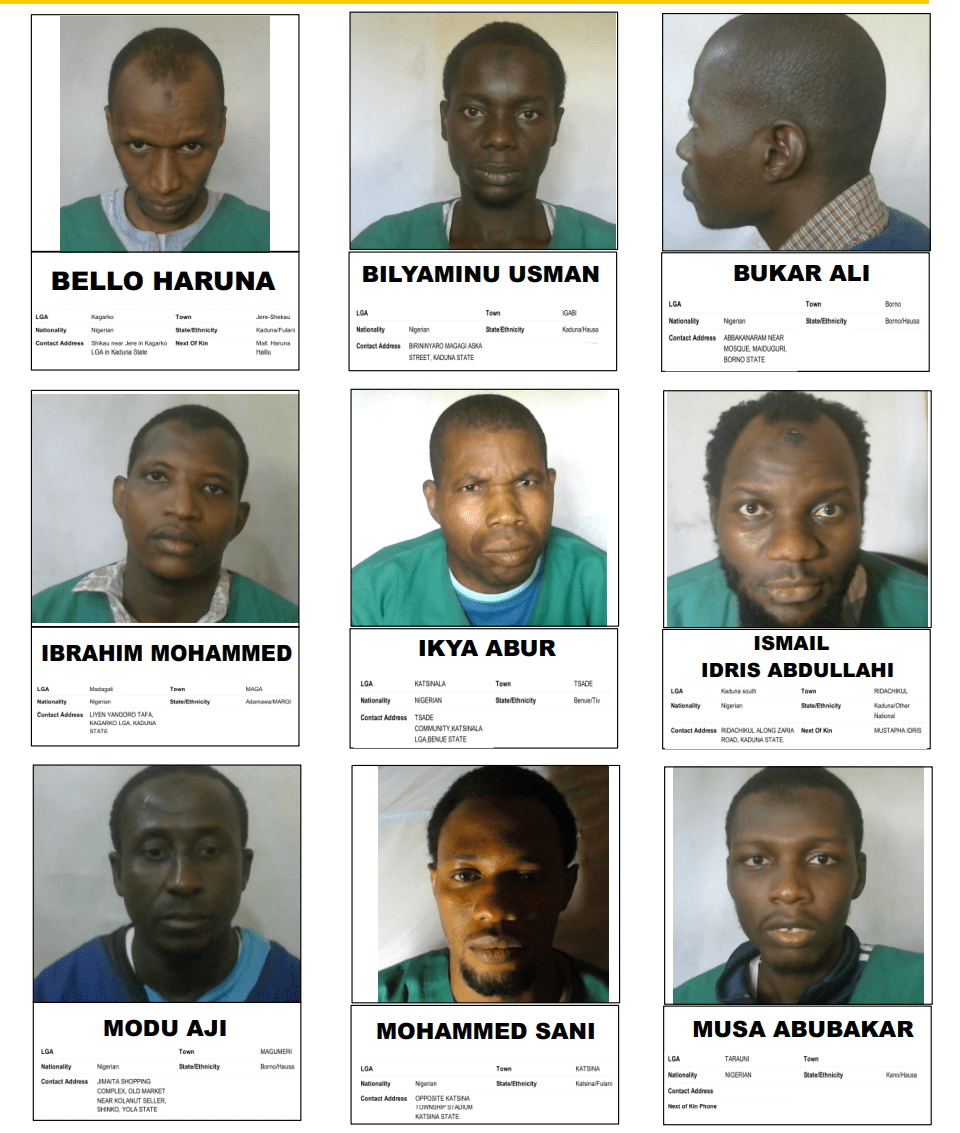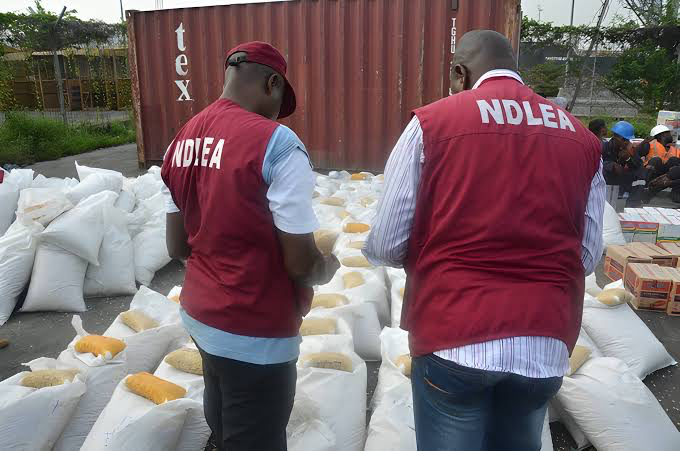NCTC, ONSA Strengthen Media Collaboration to Enhance Counter-Terrorism Efforts”
In a strategic move to bolster the fight against terrorism and organized crime, the National Counter Terrorism Centre (NCTC), under the Office of the National Security Adviser (ONSA), convened a high-level meeting with media executives and senior news editors on Wednesday, August 14th, 2024, in Abuja. This initiative aims to foster the publication of development and conflict-sensitive content, thereby promoting peace and sustainable development across Nigeria.
Major General Adamu Garba Laka, Coordinator of the NCTC, emphasized the multifaceted nature of national security during his address. He noted that security encompasses not only military but also non-military dimensions, including border security, geostrategic concerns, demographics, cyber threats, resources, and socio-economic factors. According to Major General Laka, addressing Nigeria’s security challenges requires a comprehensive, Whole-of-Society approach that extends beyond traditional military and law enforcement responses.
The NCTC, he explained, employs both kinetic and non-kinetic strategies to combat the diverse security threats facing the country. “Security matters are not confined to the military, police, intelligence, and other law enforcement agencies as many people assume,” he stated. Instead, the Centre advocates for an all-inclusive approach, engaging various sectors of the Nigerian economy in the fight against terrorism and other forms of violence.
The meeting with media leaders was particularly significant, Major General Laka noted, as it provided a platform to draw on their extensive knowledge and experience. The goal was to spark a meaningful conversation that would inform government policy, guide national planning, and influence the implementation of projects aimed at national reconstruction and sustainable development. The media, he stressed, are critical partners in this mission, and their role in shaping public perception and discourse on national security cannot be overstated.
To ensure alignment with the Centre’s objectives, the NCTC, in collaboration with the Institute for Peace and Conflict Resolution (IPCR), conducted a two-day training session in June 2024 focused on conflict-sensitive reporting. This training was designed to equip journalists with the skills necessary to report on terrorism and violent crimes responsibly, without sensationalizing or inadvertently glorifying these acts.
Prof. Emman Shehu, the guest speaker at the event, delivered an insightful presentation titled “Understanding Public Information Dissemination Platforms and Strategies for Effective Use in Countering Extremist Ideologies/Narratives.” His address underscored the importance of leveraging media platforms to counteract extremist propaganda and promote narratives that support peace and stability.
In his remarks, Barr. Zakari Mijinyawa, Special Adviser on Strategic Communication at ONSA, urged media personnel to maintain their integrity in reporting, cautioning against sensationalism that could instill fear or inadvertently glorify acts of terrorism. He highlighted the media’s role as shapers of public perception and called for courage and professionalism in their work.
Retired Major General Chris Olukolade, a former Army spokesperson and former Director of Defence Information, echoed these sentiments. He emphasized the crucial role of the media in the fight against terrorism and advocated for objective, professional reportage that contributes to the overall counter-terrorism effort. “We’ve seen instances where reports on counter-terrorism events were misrepresented,” he noted, urging the NCTC to continue engaging with stakeholders regularly.
Lanre Issa-Onilu, Director General of the Nigerian National Orientation Agency (NOA), also addressed the gathering, highlighting the agency’s commitment to countering misinformation and disinformation, particularly on social media. Represented by Mr. Paul Odenyi, Issa-Onilu revealed that NOA has deployed around 32,000 officers nationwide to fact-check social media information, as part of their broader strategy to combat terrorism through non-kinetic means. He stressed the importance of engaging the public, especially the youth, through popular social media channels to enhance awareness and sensitization efforts.
In conclusion, the NCTC and ONSA’s engagement with the media underscores the critical role of responsible journalism in the fight against terrorism. By fostering collaboration between security agencies and the media, the Centre aims to build a united front against the forces threatening Nigeria’s peace and stability. The meeting marked a significant step towards strengthening these partnerships, with a shared commitment to promoting a secure and prosperous future for all Nigerians.



